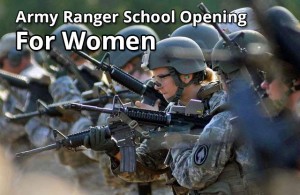 The contributions women have made to the American military over the course of this nation’s history are undeniably substantial. Despite being largely overlooked and often marginalized, innumerable examples exist of female military members demonstrating the same patriotic bravery and dedication to service as their male counterparts. It was Margaret Corbin, who defended Fort Washington with a Cannon after her husband John was killed. As the fort fell to the British, Corbin was severely wounded when sustaining musket shots to her chest, arms and jaws. Although she survived the battle, these injuries would ultimately cost Margaret Corbin her life. In 1779, congress made Margaret Corbin the first woman in the history of the United States to receive a military pension. Serving as nurses, cooks, and laundresses, later as telephone operators and radio electricians, women were instrumental to military causes from the revolutionary war through World War II. Recognizing these contributions, congress opened up all occupational military specialty positions to women, with the singular exception being combatants. In 1994, women were officially prohibited by the pentagon from participating in combat.
The contributions women have made to the American military over the course of this nation’s history are undeniably substantial. Despite being largely overlooked and often marginalized, innumerable examples exist of female military members demonstrating the same patriotic bravery and dedication to service as their male counterparts. It was Margaret Corbin, who defended Fort Washington with a Cannon after her husband John was killed. As the fort fell to the British, Corbin was severely wounded when sustaining musket shots to her chest, arms and jaws. Although she survived the battle, these injuries would ultimately cost Margaret Corbin her life. In 1779, congress made Margaret Corbin the first woman in the history of the United States to receive a military pension. Serving as nurses, cooks, and laundresses, later as telephone operators and radio electricians, women were instrumental to military causes from the revolutionary war through World War II. Recognizing these contributions, congress opened up all occupational military specialty positions to women, with the singular exception being combatants. In 1994, women were officially prohibited by the pentagon from participating in combat.
Momentum has been building for many years to allow capable, qualified, female service members to serve as combatants. In 2012, occupational inequities and disturbing rates of sexual assault among female service member prompted the pentagon to open up 14,000 positions that had formerly been male-only. In keeping with this progression, the pentagon announced the rollback of the ban on women in combat. At the time, Defense Secretary, Leon Panetta said, “The Department’s goal in rescinding the rule is to ensure that the mission is met with the best-qualified and most capable people, regardless of gender.” Although the repeal is not slated to take effect until January, 2016, the recent announcement of Ranger School being opened by the Army to women punctuated the bans lift.
Ranger School is the exhaustive, pre-requisite to serving as an Army Ranger. Physical and emotionally punishing, the school calls for three weeks of intense physical training, three weeks of military training in the mountains of Dahlonega, Georgia, where applicants battle fatigue, sleep deprivation and rugged terrain. The final phase of Ranger School involves boat operations and jungle combat in the swamplands of Camp Rudder, Florida. While females had previously served in the Army Rangers as cultural advisors, the inclusion into Ranger School represents a giant step for the military in achieving across the board equality. Women will not be able to graduate into the Army Rangers from training school for another 15 months, but successfully completing the course entitles the cadet to receive the coveted “Ranger tab.” This enables greater ability for promotion as well as fostering essential military skills such as leadership and discipline.
Interested female applicants for 2015 must have all application materials completed and submitted by December 1st. Pregnancy negates eligibility and all applicants will be subject to a pregnancy screen. In response to those who disagree with the opening of Ranger School, Rep Loretta Sanchez had this to say “Not every woman makes a good soldier, but not every man, makes a good soldier. So women will compete”, we’re not asking that standards be lowered. We’re saying that if they can be effective and they can be a good soldier or a good marine in that particular operation, then give them a shot.
Public opinion on women in combat has been unsurprisingly mixed along liberal-conservative lines. A 2013 poll conducted by Gallup found that respondents heavily favored the measure, with 74 percent saying they would vote for female combatants and only 20 percent saying they would vote against it. A YouGov poll from earlier in the year found that that 53 percent of respondents aged 29 and below favor female combatants, conversely, less than 35 percent of Americans above the age of 65 support the measure.
The two most cited arguments opposing women in combat roles are that by being on the battlefield they will jeopardize the safety of other American soldiers as a result of their inability to meet minimum ability standards; and that they will disrupt the cohesiveness of a unit because of potential increases in sexual assault, which will also cause unwanted distractions.
These arguments seem to be erroneous. Firstly, physical fitness requirements exist that must be met before and during basic training. Women are still going to be held accountable for meeting the physical requirements. Secondly, this country was founded as a meritocracy, to deny qualified candidates would be, simply put, Un-American. This issue at its core is no fundamentally different than the integration of professional sports along racial lines. Progressiveness is the defining element that separates America from the rest of the world.
